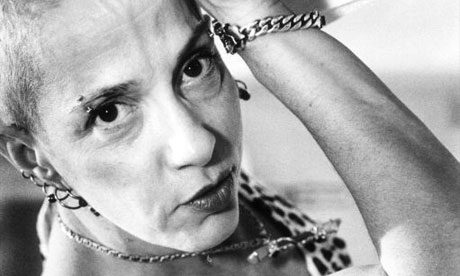Here we are then, the books from this year I’ve read and rated most highly. I’m basing my choices on the very unscientific, I thought it was brilliant at the time and I’m still thinking about it. I was concerned this would skew the list towards the end of the year but it hasn’t at all – two thirds of the books are from the first half of 2015. Publication dates are UK (where applicable) and if you click on the cover it will take you to my review.
 Citizen – Claudia Rankine
Citizen – Claudia Rankine
A superb book. An examination of race and the treatment of black people in present day America. Rankine uses flash fiction, essays and poetry to explore the way people of colour ‘…feel most colored when I am thrown against a sharp white background’ and, by implication, how often, as a white person, you are complicit in creating and maintaining that background. Short, sharp and powerful, I’d like to see a copy of Citizen distributed to every household, taught in schools and university, and added to the canon. If you believe art can change the world, this is a book that should be able to do so.
A Little Life – Hanya Yanagihara
It’s divided readers and critics but I make no apologies for including this book for several reasons: it’s utterly absorbing, I felt as though I’d been entombed in Yanagihara’s world; it focuses on male friendship which I think is unusual; the friendship group consists of four men of different ethnicities and different sexualities, one of whom is disabled and Yanagihara has written about their lives as though they are, well, people. They are not defined by their ethnicity or sexuality and this feels like a break through. It’s huge and harrowing and clearly not for everyone but I’m still thinking about it six months on.
 The House in Smyrna – Tatiana Salem Levy (translated by Alison Entrekin)
The House in Smyrna – Tatiana Salem Levy (translated by Alison Entrekin)
A short, sharp tale told in fragments. At the centre of the book is the story of the key given to the unnamed narrator by her grandfather: the key to his old house in Turkey, in Smyrna. There are four threads to the book: the narrator’s journey to her grandfather’s house; the grandfather’s journey from the house to the woman who became the narrator’s grandmother; the narrator’s relationship with her dead mother, and the narrator’s passionate affair with an unnamed man. A shocking and beautiful novella about exile in many different forms.
The Private Life of Mrs Sharma – Ratika
Kapur 
Mrs Sharma’s thirty-seven-years-old and married with a fifteen-year-old son, Bobby. They live in a flat in Dehli with her parents-in-law. Her husband, Dheeraj, a physiotherapist, has been working in Dubai for over a year in a bid to raise enough money to cover his parents’ medical bills and send his son to college to do an MBA in business. She works as a receptionist in a gynaecological clinic and dreams of starting her own business. Mrs Sharma’s veneer begins to crack when she meets Vineet Seghal on a station platform. Tightly plotted with precise, often repetitive, language, this is a brilliant book about an unfulfilled woman.
 Vigilante – Shelley Harris
Vigilante – Shelley Harris
Jenny Pepper, 42, manager of a charity bookshop, married to Elliot, graphic designer, with a 14-year-old daughter, Martha, is fed-up of her life. She’s particularly annoyed and frustrated by the way men objectify women and the consequences of this behaviour. Donning a superhero costume for a fancy dress party, she stops a mugging and gets a taste for the vigilante lifestyle. Before long, she’s on the tale of someone who’s attacking teenage girls. A gripping and believable look at the concerns of a middle-aged woman and her life.
The Last Act of Love – Cathy  Rentzenbrink
Rentzenbrink
When Cathy Rentzenbrink was seventeen, her sixteen-year-old brother, Matty, was hit by a car and left in a persistent vegetative state for eight years. The book is Rentzenbrink’s story of the effect of Matty’s accident on her and her family. Told in an unflinching first person account with a huge amount of love and dollops of humour, Rentzenbrink brings the Matty she loved back to life and pays tribute to her parents without descending into mawkishness. Heartbreaking and heartwarming. Buy tissues before reading, I’m welling up just thinking about it.
 A God in Ruins – Kate Atkinson
A God in Ruins – Kate Atkinson
A companion piece to Life After Life, A God in Ruins focuses on Ursula’s younger brother, Teddy and those who’ve shared his life – his wife, Nancy; daughter, Viola; grandchildren, Bertie and Sunny, and the men he served alongside in the RAF. The structure’s non-chronological, creating a jigsaw puzzle of Teddy’s life and the lives of his family members for the reader to reconstruct; every chapter capable of standing alone as a story in its own right. The chapters set in the war are some of Atkinson’s best writing but this is more than a character study, it’s a book that explores what fiction is. Superb.
The Vegetarian – Han Kang (Translated by Deborah Smith)
by Deborah Smith)
Mr Cheong chose his wife, Yeong-Ho, because she’s passive. But then, due to a set of reoccurring dreams, she turns vegetarian; a highly unorthodox act in South Korea. The reactions of Mr Cheong and Yeong-Ho’s family turn dark and sometimes violent quite quickly. But Yeong-Ho’s brother-in-law is fascinated with her and her mongolian mark which leads to him creating a physical work of art with her. A disconcerting story that explores society’s treatment of a woman who defies expectations and how her internalisation of those expectations affects her psyche.
 The Ship – Antonia Honeywell
The Ship – Antonia Honeywell
In the not so distant future where banks have collapsed, the homeless population is out of control, food is scarce and the military rule, Lalage is protected by her father, Michael Paul, and his creation, the ship. The ship is a version of paradise, stocked with everything you might need and more. As it sets sail with Michael Paul’s chosen people on it, Lalage begins to question her father’s motives and what she really wants from life. The Ship raises questions of wealth and poverty; of governments who fail to protect all their citizens; of the value of art and artefacts. It’s futuristic setting is misleading, this is really a novel about what’s happening to society now.
The First Bad Man – Miranda July 
Cheryl Glickman, early forties, lives alone and works for a company who make self-defence, fitness DVDs. She has two fascinations: Phillip Bettelheim and babies who might be Kubelko Bondy, the son of her parents’ friends. Cheryl’s bosses ask if their daughter, Clee, can move in with her until she finds a job. First Clee trashes Cheryl’s system for keeping the house clean and tidy, then she’s physically fighting Cheryl for extended periods before Cheryl begins imagining herself as Phillip having sex with Clee. It sounds absurd but it’s a sharp exploration of loneliness which transforms into something emotionally fulfilling.
 The Wolf Border – Sarah Hall
The Wolf Border – Sarah Hall
Rachel has spent almost a decade in Idaho, monitoring wolves on a reservation but an unplanned pregnancy, the death of her mother and the offer of a job supporting the reintroduction of the Grey Wolf to Great Britain sees her returning to the Lake District. The Wolf Border considers a variety of different intersections that humans come up against – birth, death, addiction, love, political change and, of course, nature. The precision of the language, particularly in the descriptions of the Lake District and the wolves, is superb as is the characterisation of Rachel. One of our best novelists, probably her best book.
Grow a Pair: 9 1/2 Fairytales About Sex 
– Joanna Walsh
From the very opening sentences of the first story to the end of the afterword of Grow a Pair transformations occur: characters adopt and change their genitalia; a man becomes a woman; a queen becomes a witch; a woman fragments into multiple vaginas. Walsh mixes retellings of traditional fairytales like ‘The Princess and the Penis’ with new pieces. Filled with as many moments of humour as it is ones of magical realism, the collection allows its women to take control of their own sexuality and fulfilment. Entertaining, smart and thoughtful.
 The Gracekeepers – Kirsty Logan
The Gracekeepers – Kirsty Logan
A dual narrative following two young women – North, who lives with Circus Excalibur, travelling the sea but performing most nights on land with her bear, and Callanish, the gracekeeper, living on a tiny island by the graveyard and performing Restings for the dead. North has a number of issues to deal with – she’s engaged to Ainsel and his father wants them to live on land, but she doesn’t want either of these things; Ainsel’s mother is jealous, and North is pregnant to someone else. She’s also tied to Callanish in ways that only begin to reveal themselves when the two meet. A beautifully rendered world.
An Untamed State – Roxane Gay 
Mirelle is kidnapped in front of her husband, Michael, and their baby, Christophe, directly outside the heavy steel gates at the bottom of the drive to her parents’ house in Haiti. She’s been taken because her father’s rich and the kidnappers believe he will pay a lot of money for her, his youngest and favourite daughter in U.S. dollars. He refuses, assuming they will return her unharmed. She’s repeatedly raped and tortured. The majority of the book deals with the aftermath, looking at whether it’s possible to rebuild a life, a marriage, a familial relationship after such horror. An interesting examination of power and privilege.
 Talk of the Toun – Helen MacKinven
Talk of the Toun – Helen MacKinven
Angela’s short-term ambition is for her and her best friend, Lorraine, to lose their virginity over the summer holidays. Long-term, she wants to move away from the council scheme she’s grown up on and attend Glasgow School of Art. Her parents are determined she’s getting a job. Over one summer in the 1980s, Angela and Lorraine’s friendship will deteriorate thanks to Pamela aka Little Miss Brown Nose and Stevie Duffy, just out of borstal and ‘a total ride’. Class, religion, family and friendships are all explored but it’s the perceptive look at women’s sexuality and the use of Scots dialect that really make this a stand out read.
Honourable mentions also go to The Hourglass Factory by Lucy Ribchester; The Table of Less Valued Knights by Marie Phillips; Dear Thief by Samantha Harvey; Hausfrau by Jill Alexander Essbaum, The Chimes by Anna Smaill and Our Endless Numbered Days by Claire Fuller.


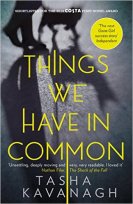



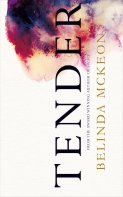








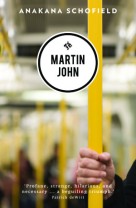

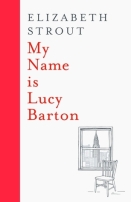



![FullSizeRender[3]](https://thewritesofwoman.files.wordpress.com/2015/12/fullsizerender3.jpg?w=143&h=202)

![FullSizeRender[2]](https://thewritesofwoman.files.wordpress.com/2015/12/fullsizerender21-e1451496678778.jpg?w=130&h=196)
![FullSizeRender[1]](https://thewritesofwoman.files.wordpress.com/2015/12/fullsizerender1.jpg?w=584&h=227)

![FullSizeRender[4]](https://thewritesofwoman.files.wordpress.com/2015/12/fullsizerender4.jpg?w=300&h=236)























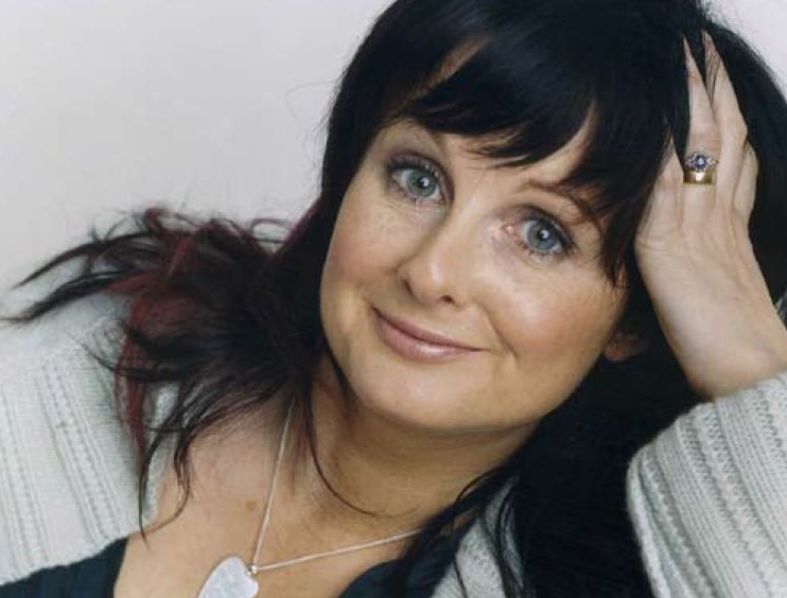

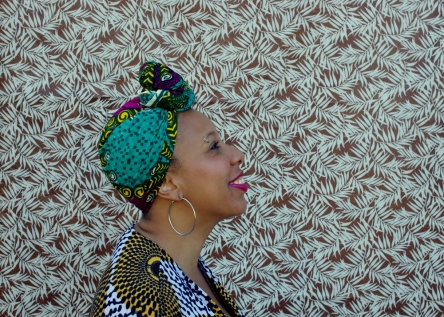 Photograph by Kwesi Abbensetts
Photograph by Kwesi Abbensetts

 Two excellent UK prizes – the
Two excellent UK prizes – the 





































